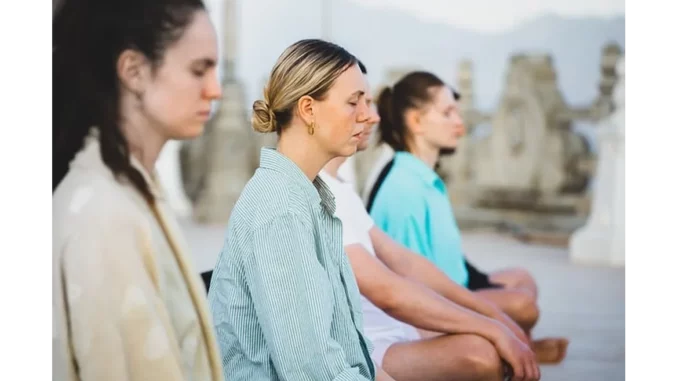
When we think about relaxation, the mind often conjures images of lavish spas or expensive retreats. However, the truth is that tranquillity can be found in the simplest of activities. Recently, I had the pleasure of sitting down with Emma Clarke, a wellness coach dedicated to helping individuals find peace in their daily lives. Our conversation revolved around four straightforward yet profoundly effective relaxation techniques: taking a warm bath, meditating, engaging in creative pursuits, and more. Here’s a recount of our conversation and Emma’s invaluable insights.
Emma Clarke’s journey into wellness coaching began almost a decade ago. After experiencing the overwhelming stress of a high-powered corporate job, she sought ways to reclaim her peace of mind. Her personal journey led her to the realisation that true relaxation doesn’t require grand gestures; it can be found in the humblest of activities.
1. Take a Warm Bath
Emma’s face lit up when we discussed the simple act of taking a warm bath. “Can you think of a more relaxing activity than a bath?” she asked, her voice filled with genuine enthusiasm. For Emma, a warm bath is more than just a method of cleansing the body; it’s a ritual that soothes the soul.
“There’s something almost magical about immersing yourself in warm water,” she explained. “The heat helps to relax tense muscles, and the very act of taking time out for yourself can be incredibly restorative.” Emma suggested enhancing the experience with Epsom salts or essential oils such as lavender or chamomile, which have natural calming properties. She also recommended setting the mood with soft lighting or candles and perhaps some gentle music in the background.
2. Meditate
Meditation, once regarded as a niche activity, has now entered mainstream consciousness. Emma was quick to dispel any myths about meditation being a complex or esoteric practice. “Meditation is more than a buzzword,” she asserted. “It’s a practical tool that anyone can use to reduce stress and find inner peace.”
Emma shared her personal practice, which involves spending just 10 to 15 minutes each morning in meditation. “You don’t need any special equipment or training to start meditating,” she assured. “Find a quiet space, sit comfortably, and focus on your breath. When your mind wanders—and it will—gently bring your focus back to your breathing.” She emphasised the importance of consistency, noting that even a few minutes each day can make a significant difference over time.
3. Engage Your Creative Side
One of the more surprising aspects of our conversation was Emma’s emphasis on creativity as a form of relaxation. “Engaging your creative side can be incredibly therapeutic,” she remarked. “Whether it’s painting, writing, gardening, or even cooking, these activities allow you to express yourself and can be a wonderful way to unwind.”
Emma recounted her own experiences with painting. “I’m not by any means a professional artist,” she laughed, “but there’s something so freeing about putting brush to canvas. It’s about the process, not the end result.” She encouraged everyone to find a creative outlet that resonates with them, stressing that the goal isn’t to create a masterpiece but to enjoy the act of creation itself.
4. Connect with Nature
In our increasingly digital world, reconnecting with nature can feel like a breath of fresh air—literally and figuratively. Emma spoke passionately about the benefits of spending time outdoors. “Nature has an incredible ability to restore and rejuvenate us,” she said. “Whether it’s a walk in the park, a hike in the mountains, or simply sitting in your garden, being in nature helps to ground us and can significantly reduce stress.”
Emma’s own routine includes daily walks with her dog in a nearby forest. “The sights, sounds, and smells of nature have a calming effect that’s hard to replicate indoors,” she mused. She advised making it a point to unplug from digital devices during these times to fully immerse oneself in the natural world.
Our conversation was a poignant reminder that relaxation doesn’t have to be complicated or costly. Emma Clarke’s insights highlight how everyday activities, when approached with mindfulness and intention, can become powerful tools for managing stress and enhancing well-being. Her journey from corporate burnout to wellness coach serves as an inspiring testament to the transformative power of simple, accessible practices.
In a world that often glorifies busyness and hustle, Emma’s message is both refreshing and vital: peace and relaxation are within reach, and sometimes, all it takes is a warm bath, a few minutes of meditation, a creative endeavour, or a moment in nature to remind us of that.
Oliver Jenkins


Be the first to comment